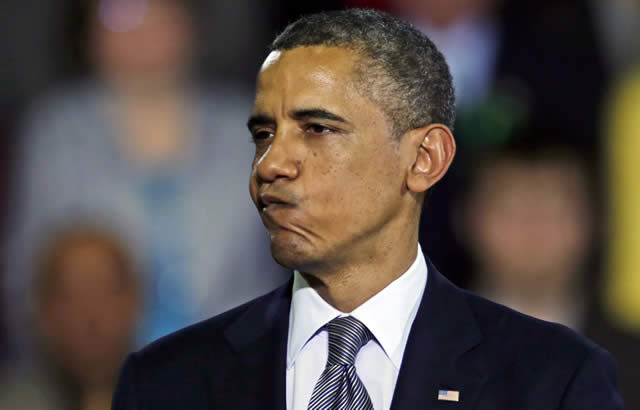Ban use of sanctions as a political weapon

Ben Tsododo Correspondent
As a citizen struggling through a space of time constrained by illegal sanctions imposed on my country by the West, the announcement by the United States of a policy shift towards Cuba brought a sense of deja vu. It was expected that the United States would eventually make a diplomatic climbdown on its heinous embargo imposed on Cuba in 1961 as the sanctions policy was apparently not serving any purpose except to stroke the ego of the vindictive superpower.
On Wednesday, December 17, 2014, US President Barack Obama announced that his country was embarking on efforts to restore normal relations with Cuba.
In clear terms, the US leader said: “In the most significant changes in our policy in more than 50 years, we will end an outdated approach that, for decades, has failed to advance our interests, and instead we will begin to normalise relations between our two countries.
“Through these changes, we intend to create more opportunities for the American and Cuban people, and begin a new chapter among the nations of the Americas.”
Although the Western power has not yet announced the lifting of the over-50-year-old embargo, the mere gesture of thawing relations with the sanctions-burdened Cubans is in itself a tacit capitulation and admission to the futility of the use of the weapon of sanctions by the hard-hearted US.
Obama’s statement not only summarised his government’s damning assessment of the country’s sanctions policy towards Cuba but also inadvertently become an indictment of the whole regime of using sanctions against any society, be it Cuba or Zimbabwe.
The uselessness of the sanctions policy could not better be captured than in Obama’s own words: “Neither the American, nor the Cuban people are well served by a rigid policy that is rooted in events that took place before most of us were born.”
He further indicated that: “After all, these 50 years have shown that isolation has not worked.”
He additionally damned the policy saying: “I do not believe we can keep doing the same thing for over five decades and expect a different result.
“Moreover, it does not serve America’s interest, or the Cuban people to try to push Cuba toward collapse.
“In that spirit, we should not allow US sanctions to add to the burden of Cuban citizens that we seek to help.”
Unwittingly, the US leader acceded that sanctions have deleterious effects on Cubans, Zimbabweans and any other global citizens squirming under the pressure of the embargoes as they push them “towards collapse”.
Moreso, Obama actually admitted that the horrible effects of sanctions on citizens and economies of the subjected nations are of no value either to the belligerent superpower or the victim societies.
Zimbabwe has been decrying this all along saying that the Western- imposed sanctions were hurting ordinary citizens.
However, proponents of the evil embargoes have been insisting that they were mere “travel restrictions” only affecting the targeted individuals.
In Zimbabwe, people have been groaning under the weight of sanctions for over a decade now without any acknowledged benefits either to the US or its acolytes.
Contrary to expectations of the proponents of sanctions, no regime change or meaningful strides towards any change of government has been registered in Zimbabwe since the imposition of the embargoes.
Instead, the whole regime change infrastructure is crumbling in the face of renewed nationalism among Zimbabweans who for the umpteenth time have emphatically voted President Robert Mugabe into power in 2013.
More discernibly, the political parties fronting the sanctions drive and its regime change juggernaut have been consistently and outrightly rejected by the electorate and are consequently experiencing the pangs of inevitable implosion.
Such political permutations in Zimbabwe runs counter to the purposes of imposing declared and undeclared sanctions on the country by the US and its allies.
It leaves those who imposed sanctions with egg on their faces and reluctantly rethinking the usefulness of this futile political tool.
Nonetheless, what is puzzling is that despite realising the futility and wickedness of using sanctions, the US and its like-minded sidekicks continue to employ indiscriminate embargoes against countries deemed inimical to their ideological thrust and political hegemony.
As I write, the US and the European bloc are maintaining a harmful sanctions regime against my country and are busy expanding sanctions on Russia and other countries.
This is despite Obama confessing that sanctions results in unnecessary humanitarian devastation on ordinary citizens living in countries under sanctions such as Cuba.
History is replete with cases of ordinary citizens in countries saddled with sanctions who endured death and humiliation as a result of the unjustified embargoes.
Around the 1990s, hundreds of thousands of children and women in Iraqi lost their lives as a result of critical shortages of water treatment chemicals, medical provisions and foods supplies caused by sanctions.
In Zimbabwe, families are suffering injury to their dignity as a result of sanctions.
Not only have they had their life dreams stolen and shattered but they have had their generational potential limited and delayed.
With no jobs available, industries continuing to shut down and the social services deteriorating, families are facing a desolate future with no respite in the foreseeable future as long as the sanctions are in place.
Around 2007, some Zimbabweans unnecessarily lost their lives to diseases such as cholera and HIV/Aids because the health delivery system was compromised by the sanctions.
When lives and human dignity are needlessly lost as a result of war, terrorism or partisan politics, it is regarded as a crime against humanity, liable for prosecution at the International Criminal Court.
Similarly, the lives lost as a result of sanctions or the indignities suffered thereof should be given the same legal recourse at any international court of justice.
This is a challenge to genuine international human rights lawyers or organisations to ensure that either the Cubans or Zimbabweans, who are losing their destiny and dignity at the hands of US sanctions, should be given legal assistance to reclaim their rights at the ICC or any other international court.
Thanks to the US president, the use of sanctions has been exposed as merely cruel, criminal and inhumane.
This provides a congenial pedestal to start a global campaign to call for a ban against the use of sanctions.








Comments